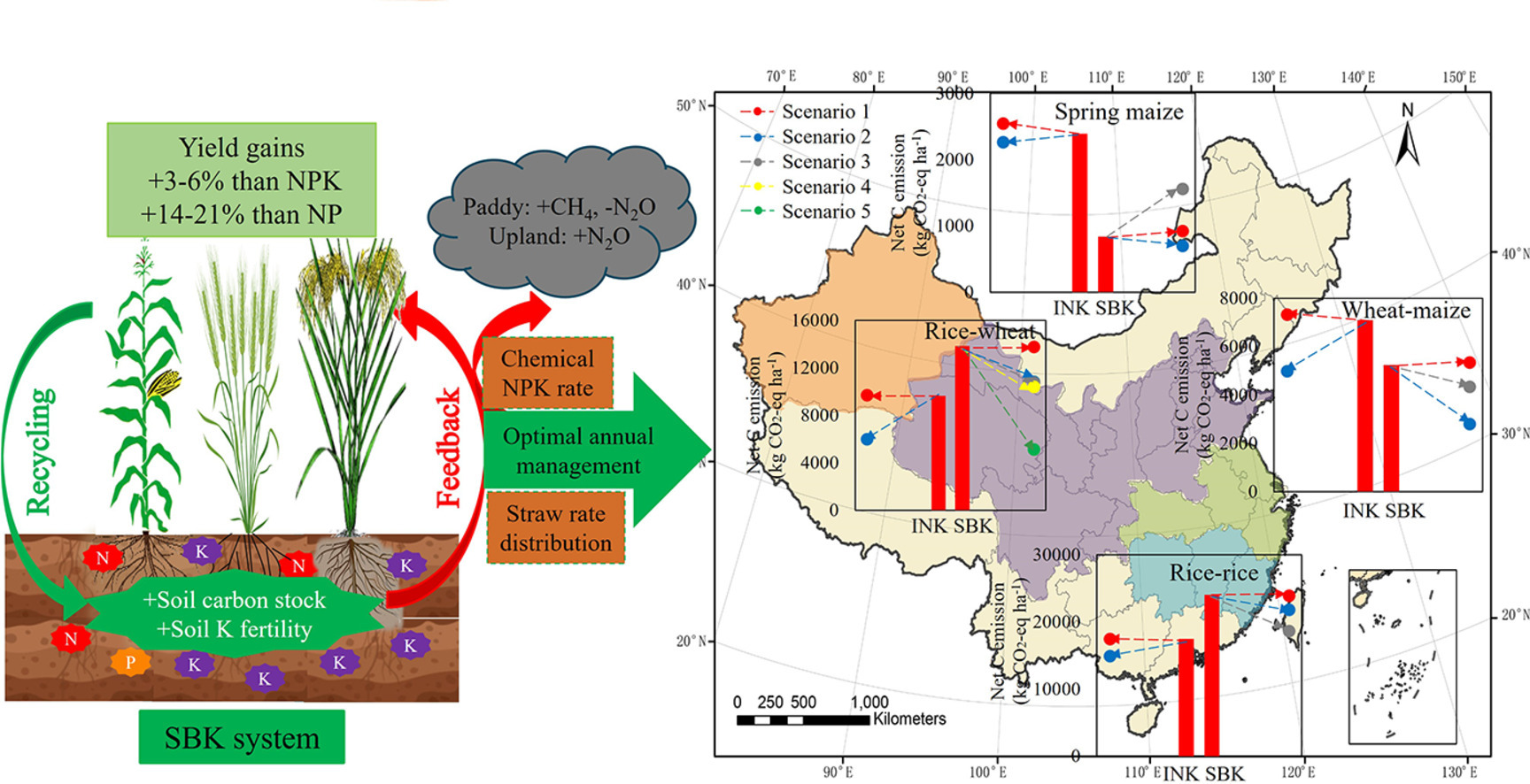Potassium resources management systems in Chinese agriculture: Yield gaps and environmental costs
China is the world's largest consumer of chemical fertilizers, with a strong reliance on imports of mineral K fertilizer up to 50 %. Inexpensive and renewable straw-K recycling is crucial for enhancing soil K fertility and carbon (C) sequestration. Here, national management networks for inorganic- and straw-K were systematically integrated to identify yield gaps and C mitigation potential in Chinese typical crop rotation systems. National spatio-temporal changes in soil K fertility in the past 40 years were also mapped, indicating that about 52 % of national cereal arable cropland was still under low-K status in 2020. Compared with the inorganic K system (INK), grain yields of maize, wheat, and rice were respectively reduced by 9.4 %, 14.9 %, and 13.4 % under 0 K system, and increased by 5.2 %, 6.2 %, and 3.0 % under straw-based K recycling system (SBK system). Estimated net C emissions with the SBK system were 11.6 % (maize) and 47.4 % (wheat) lower than with the INK system, mainly due to the larger increase in soil C sequestration than in N2O production. Conversely, the SBK system increased net C emissions in rice by 57.6 % than the INK system due to larger increase in CH4 emissions. Scenario analyses showed that the annual C mitigation potential in the SBK system would approach 16.9 % (spring maize), 46.4 % (wheat-maize), 62.9 % (rice-wheat), and 22.4 % (rice-rice) by optimising the annual chemical fertilizer rate and seasonal straw distribution. Integrated inorganic- and straw-K management could also be extended to other K-limited developing and less-developed regions to enhance global food security and agricultural green development.
This study, published online in Resources, Conservation & Recycling in January 2024.Fig. Graphical abstract
Contact:
LU Dianju
Institute of Soil Science, Chinese Academy of Sciences
Email: djlu@issas.ac.cn
Web: http://english.issas.cas.cn/

